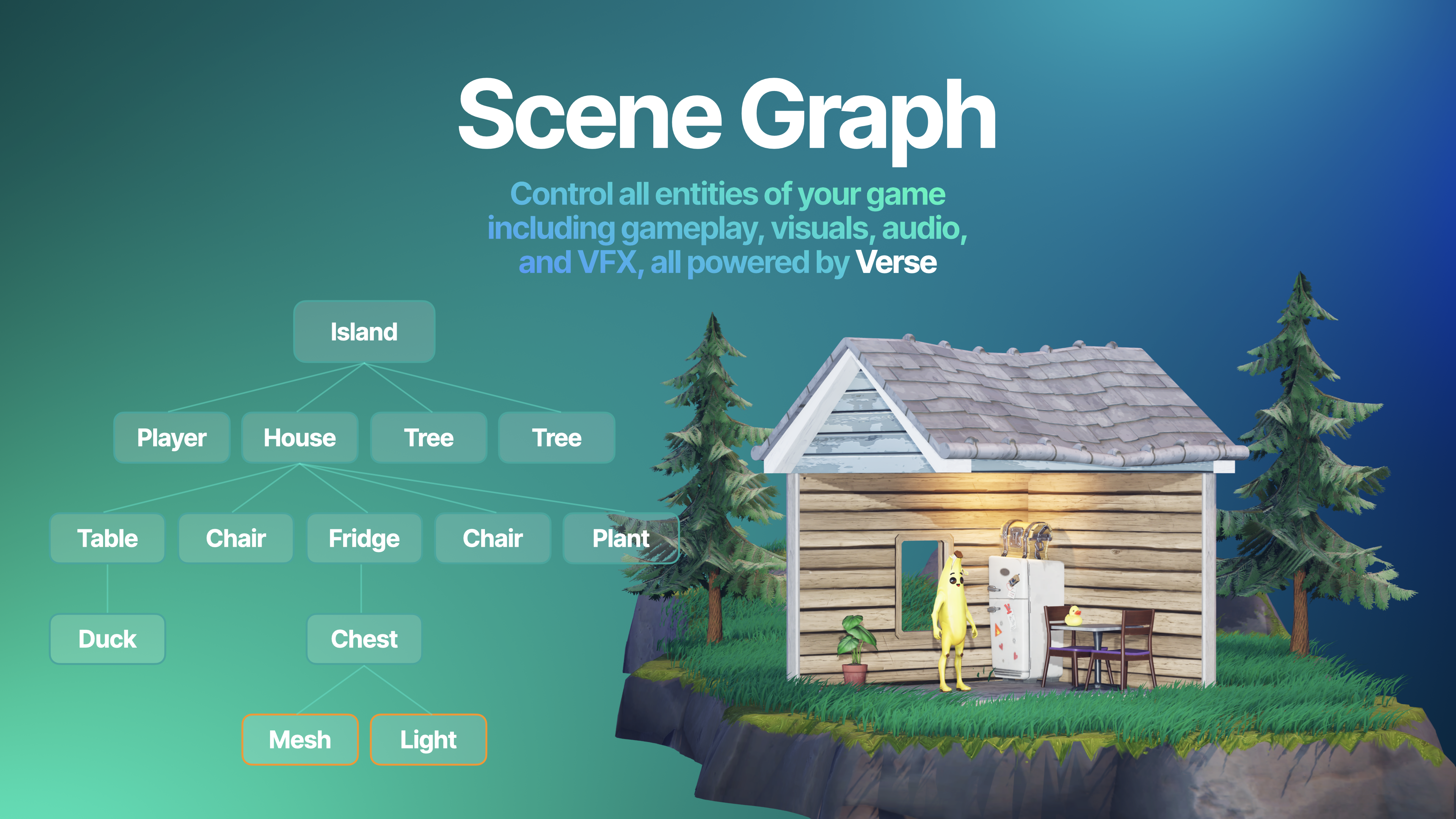
Fortnite isn't just a video game anymore. The release of Unreal Editor for Fortnite in 2023 set the game on a new course that its fans have eagerly embraced. Whatever you call it, whether it's the metaverse or a creative sandbox, Fortnite has a growing ecosystem of features designed to enable everyone to let there imaginations free, and perhaps make money. It's why Fortnite has been viewed as a gateway to the creator economy.
Fortnite is now a proving ground for what the future of interactive entertainment might look like, with games like Moontopia releasing and at this year's State of Unreal Epic shared Fortnite (UEFN) has paid out $722 million to third-party creators. At the centre of this shift is Saxs Persson, Epic Games’ Executive Vice President and one of the key architects shaping Fortnite’s transformation from an online game and into a full-fledged creative platform.
“The headline [tag line] for Fortnite is a place you go to have fun with your friends,” Saxs tells me as we meet during Unreal Fest in Orlando. “What you do there? That’s not really up to us anymore.”
Epic isn’t abandoning the game development space – Battle Royale remains a major part of the Fortnite ecosystem – but it's taking a backseat in terms of attention. Instead, the game and platform developer is betting on user-generated content (UGC), third-party creators, and a massive suite of creative tools to fuel its growth. In many ways Epic is stepping back to do what it has always done best, make the tools by which creators can, well… create.

User-created content: the new backbone of Fortnite
“We're not going to stop making our own games,” Saxs explains. “But we're much more of the belief that new content floats all boats.” He emphasises that while Epic remains a prominent creator within the platform, the future hinges on letting others build and thrive, aided by systems that help creators cultivate their own communities and audiences.
Recently Epic has released new tools for Unreal Editor for Fortnite (UEFN) that are bringing the platform closer to tradtional game development, but in an easy-to-access format. Tools like Scene Graph that enable users to create detailed environments by organising element in a scene into a hierarchy, with 'prefab' elements being created to easily repeat anything added to a scene.
Fortnite’s current economy reflects this shift. Revenue is pooled, and payouts are based on engagement, not origin. “The best content will win at the end of the day,” Saxs says. “We don’t want to build moats. We want creators to have a fair shot.”
This means zero entrenchment, zero switching cost, and no walled gardens. If a new viral island hits, players can jump in immediately – and that creator benefits. The result is a decentralised, dynamic, and creator-first model that breaks the mould of traditional game economies.

Fortnite as a platform, not just a game
The long-term vision is ambitious: turn Fortnite into a real and functioning game developer and publishing platform. That means building the infrastructure – discoverability, safety, monetisation, and mobile access – and giving creators tools powerful enough to build whatever they imagine.
Epic is also expanding Fortnite’s reach through UEFN and emerging AI tools. “Up until now, UEFN has been a subset of Unreal Engine,” Saxs says. “With things like Scene Graph and LLM integration, we’re starting to blur that line. The goal is to make it so creators don’t have to choose.”
One area AI is set to change radically is how games are made. Epic is experimenting with AI-generated NPC behaviour, adaptive tutorials, and contextual assistance. “Nobody likes a badly designed tutorial,” Saxs says. “But if I jump five times and miss the ledge, and an AI tells me what I’m missing – that's helpful. And now, that’s achievable.”
New AI tools were demoed at Unreal Fest, which showcase how NPCs created using a 'Persona Device' can be added to Fortnite games to make use of LLMs for realistic reactive results – a little like the Nvidia ACE AI that will react in lifelike ways to questions. Epic also teased a new AI tool called 'Epic Developer Assistant' that will enable creators to generate Verse Code from text prompts – UEFN's bespoke programming language – as well as offer advice, workflows and guides.
This democratisation of game development is core to Epic’s mission. “We're saying everybody has the choice to reach the level of sophistication they want,” Saxs explains. “You don’t have to stop just because a tool wasn’t exposed to you.”

Trust, access, and data ethics
Epic’s platform ambitions extend beyond tools. Saxs is blunt about what’s missing: mobile access and regulatory fairness. (Read our article on why Apple and Epic Games are in court over Fortnite being pulled from the App Store.)
“It’s very frustrating that we don’t have full access to mobile,” Saxs says, adding: “We’re not asking for anything special. Just to be allowed to compete.”
At the same time, and given UEFN is going to get AI tools and features, Epic is taking a strong stance on data responsibility in AI training. “Data ownership matters.” According to Saxs, Epic licenses the data it trains on and doesn’t siphon user content into its AI models. Transparency is critical as creators place increasing trust in the platform.
What started as a breakout, viral battle royale game has become a creative ecosystem, with Fortnite serving as a foundation rather than a finished product. A platform that has played host to music and sport events as well as enabled gamers to become developers.
“It helps tremendously,” Saxs says, reflecting on how Fortnite and its ecosystem has grown over the years. “Players want new content. Creators help us make something fresh every day.”

For Saxs, it’s the fulfilment of a decades-long dream. “Technology enables creativity. Fortnite is a catalyst. It’s a chance for people to participate in something huge.”
Ultimately, Epic isn’t just a game studio or an engine provider anymore. It’s positioning itself as a platform maker – laying down the plumbing that makes creative expression scalable and accessible. “My title should be ‘Fortnite Plumbing,’” Saxs jokes. “That’s what it is – everything that makes the experience seamless so creators can just make the game.”
In that sense, the future of Fortnite's creative ecosystem may not be defined by what Epic builds, but by what the world builds inside it.







